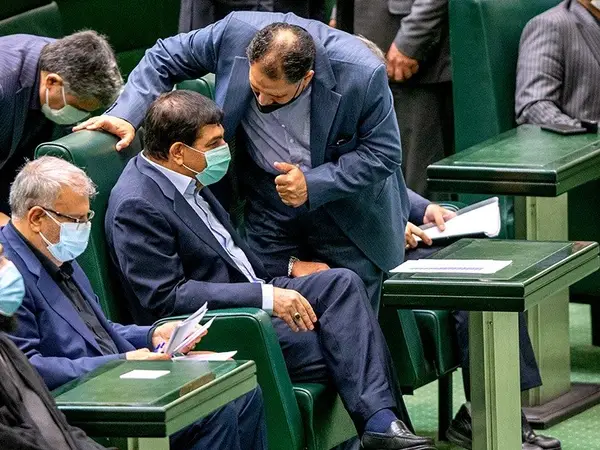Reports from Iran indicate that political power within the Raisi administration is likely to change hands between two leading hardline conservative groups.
The reports quote rumors circulating on the popular messaging application Telegram as saying that Mostazafan Foundation Chief Parviz Fattah, a member of the ultraconservative Paydari Party is likely to replace Vice President Mohammad Mokhber who has been under attack for the rapidly falling national currency in the past week.
In a closed-door session of the parliament Saturday morning, Mokhber reportedly refused provide a convincing answer for the rial’s fall and told the lawmakers: "That is how it is. Take it or leave it!"
Conservative news website Nameh News, which reported the possibility of a change at the top level of the Raisi administration on Saturday, said that Vice President for Economic Affairs Mohsen Rezaei is also likely to be replaced by Zahedi Vafa, another Paydari member.
Political observers have been saying recently that no routine change in the combination of the cabinet can save the administration, particularly because all of these hardliner conservative groups are equally inefficient and unpopular. Nonetheless, rumors in Tehran indicate that the new arrivals will strengthen the position of Planning and Budget Organization Chief Massoud Mirkazemi and his efforts to contain the current chaos.
President Ebrahim Raisi recently promised during a public meeting with Iran’s ruler Ali Khamenei that the rial will be strengthened. Since then, during the past week the rate of exchange for the US dollar has risen from over 450,000 rials to more than 570,000.
At the same time, while the government is under pressure for the failure or rather lack of an economic policy, an editorial in the reformist daily Sharq predicted that according to political observers in Tehran, as street protests seems to have receded, Iran is likely to face a new wave of unrest because of the inevitable rise in prices as the rial falls.
According to Shargh newspaper, while social protests in the Iranian year 1401 [2022-23] led to major unrest, in 1402 [2023-24] economic matters are likely to create political turmoil. Shargh wrote that this possibility is so strong that even some government institutions have expressed concern about the likelihood.
Meanwhile, political analyst Ghasem Mohebali told Rouydad24 website in an interview that "We are facing a government whose style of management is based on wishful thinking and chanting slogans, mindless of the fact that time is over for that kind of management." Mohebali added: "This is a system that has all the political power and financial resources at its disposal and does not need the people for being elected another round."
"The government thinks that by spreading 'good news' about developments such as a probable visit by the Sultan of Oman, it can lower the rates of exchange, but it does not realize that this wishful thinking does not solve any problem," Mohebali added. He said the government is in a situation that it cannot step back from its positions and at the same time it cannot continue its current policies.
In another development, lawmaker Shiva Ghassemipour said: "although the economic situation was not ideal before Raisi, people's livelihood has become increasingly more difficult under the Raisi administration." Pointing out the political and economic impasse, she said that "It would have not possibly made much of a difference even if someone other Raisi was steering the administration."
